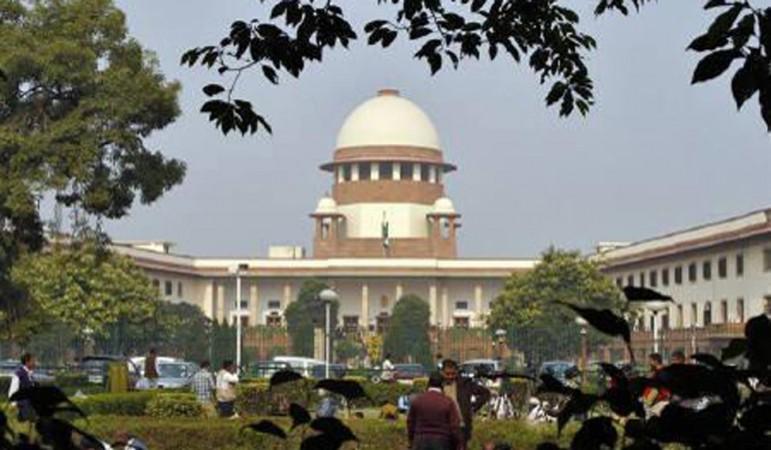
The Supreme Court on Tuesday issued a notice to the Centre and others seeking their response on whether to transfer all cases from three High Courts to itself to decide whether social networking sites should be compelled to share with police information pertaining to criminals.
The court also sought responses from social media entities Twitter, Google and YouTube on Facebook's plea and listed the matter for further hearing on September 13.
However, it did not stay proceedings in the High Courts but refrained them from passing any final order.
The apex court order came on the submission made by Facebook that the transfer of cases would serve the interests of justice by avoiding the possibility of conflicting decisions from the High Courts.
Facebook told the apex court that two petitions had been filed in the Madras High Court and one each in the Bombay and Madhya Pradesh High Courts.
A bench headed by Justice Deepak Gupta observed that the top court needed to find a balance between the right to online privacy and the duty to detect people who spread panic and commit crime online.
Appearing for the Tamil Nadu Government, Attorney General K.K. Venugopal cited incidents of online games like Blue Whale which had caused deaths in India and said that the service providers did not provide details of the 'originator'.
He cited crime including terrorism and pornography and said that there was no mechanism to detect the originator and that sharing of information by social media sites with police would help in resolving crimes.
He told the court that while it was claimed that WhatsApp messages were end-to-end encrypted, there was an IIT Professor who said that the originator of a message can be identified.
Facebook counsel and senior advocate Mukul Rohatgi wanted to know why was Tamil Nadu so adamant that the matter should be decided by the High Court.
The counsel emphasised that issues such as whether social media sites should share personal data was a serious matter and should be decided by the Supreme Court.
All the pleas in three High Courts have sought a declaration that Aadhaar or any other government authorised identity proof should be made mandatory to authenticate social media accounts.
"All the common cases seeks similar relief and involve the similar question of law," Facebook said in its plea, adding that any finding on the common questions would have far-reaching implications for the general public and the parties.
The petitioner has sought a stay on the proceedings in various High Courts.
Facebook said that it would suffer irreparable loss if the proceedings were not stayed at this stage, as conflicting decisions on the prayer seeking to link Aadhaar with social media platforms would adversely impact the Petitioner's platform used throughout India.
The plea said that the common questions involve the interpretation of important Central statutes including the Information Technology Act, 2000 and the Aadhaar and Other Laws (Amendment) Ordinance, 2019 which would directly impact the central and state governments.
The Madras High Court had expanded the scope of the case to consider the issue of online abuse and fake news being circulated through social media and sought to define the liabilities of intermediaries in cases of fake news and cyber abuse.

















